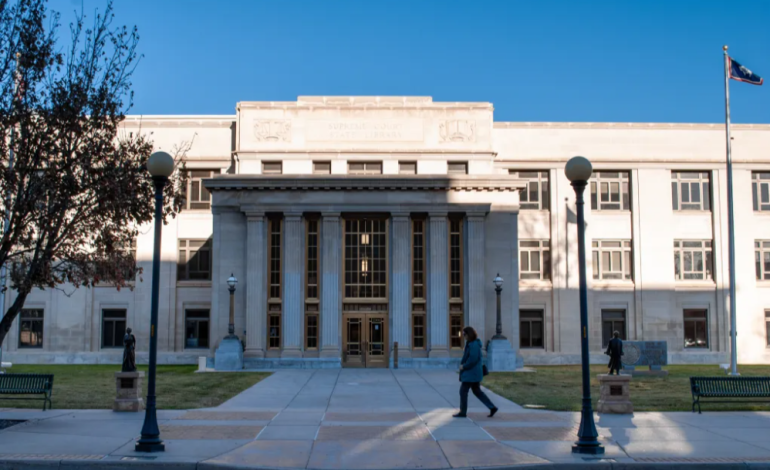A proposed bill in Wyoming aiming to expand prosecutors’ ability to appeal certain judicial rulings in criminal cases is drawing criticism from judges, defense attorneys, and legal experts, Wyo File reports.
Critics argue that the measure could further strain an already overburdened judicial system, increase pre-trial detention times, and tilt the balance of power in the courtroom in favor of the prosecution.
House Bill 52, titled “State’s Right of Appeal in Criminal Cases,” was introduced at the request of the Wyoming Attorney General’s Office. The proposal seeks to grant prosecutors the right to appeal pre-trial rulings made by judges, such as decisions to dismiss charges for lack of evidence or rulings on a defendant’s competency to stand trial. Currently, Wyoming prosecutors have limited grounds to appeal such decisions.
Proponents of the bill argue that it addresses a legal gap created by a January 2024 Wyoming Supreme Court decision, which ruled that prosecutors could only appeal in rare circumstances. Deputy Attorney General Jenny Craig described the situation as a “total loss of remedy” for prosecutors seeking to challenge certain judicial rulings.
While the Attorney General’s Office insists the bill would be used sparingly, many in the legal community are skeptical. Critics warn that the measure could significantly slow down the resolution of criminal cases, increase the workload for public defenders, and contribute to longer periods of pre-trial detention for defendants.
Meredith Esser, a University of Wyoming law professor and director of the school’s Legal Aid Clinic, expressed concern that the proposal would add pressure to an already strained judicial system.
“The system works as a whole, and if you tug on one strand or put weight on one strand, the whole system is then out of balance,” Esser explained.
The Wyoming Trial Lawyers Association also voiced concerns, with Executive Director Marcia Shanor noting that the organization is “very likely” to oppose the bill, citing its potential to prolong criminal proceedings.
The potential cost of the proposal is another key concern. A fiscal analysis by the Legislative Service Office (LSO) found that it is impossible to determine how much the new appeals process would cost the state. Increased caseloads could affect the budgets of district courts, the public defender’s office, and local jails, but without a clear projection of how often prosecutors would use the expanded appeal rights, the financial impact remains uncertain.
Public defenders, who are already operating with limited resources, could face a significant increase in their workload. Brandon Booth, head of Wyoming’s Office of the Public Defender, is expected to provide lawmakers with a formal analysis of how the proposal might affect his office’s budget.
Opponents of the bill also raise ethical questions about fairness and the balance of power in the criminal justice system. While the Attorney General’s Office modeled the bill after similar laws in neighboring Utah, critics point out a key difference: Utah’s law grants appeal rights to both prosecutors and defendants. In Wyoming’s version, only prosecutors would see their rights expanded.
This imbalance could place undue pressure on defendants, particularly those without the resources to hire private attorneys. Albany County Circuit Court Judge Rob Sanford warned that the bill could negatively affect plea negotiations, as defense attorneys may feel pressured to avoid trials due to the risk of prosecutors appealing pre-trial rulings.
“The calculus of risk in reaching certain plea agreements changes when the only finality the defense attorney or their client would get is acquittal at trial,” Sanford noted.
Additionally, district courts could become overburdened if they are required to handle an influx of appeals from prosecutors. Unlike many other states, Wyoming does not have a dedicated appellate court system. Appeals from circuit and municipal courts must be heard by district courts, which are already responsible for managing their own dockets.
The Attorney General’s push for the bill was prompted in part by Larsen v. The State of Wyoming, a case involving a misdemeanor marijuana possession charge. In that case, a Sheridan woman was arrested for possession of marijuana after police entered her apartment without consent. The circuit court judge ruled that the officer’s actions were unlawful, and the evidence was suppressed, effectively ending the case. Prosecutors challenged the decision, but the Wyoming Supreme Court ruled that the case did not involve significant legal issues worthy of appeal.
The Attorney General’s Office viewed the decision as an unnecessary restriction on prosecutors’ ability to appeal lower court rulings. Proponents of the new bill argue that it would prevent similar situations in the future by allowing prosecutors to challenge rulings they believe are incorrect.









